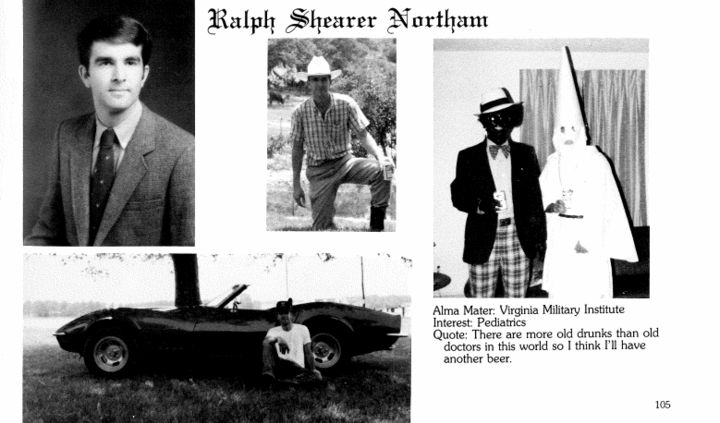Not All Research Is Created Equal, Free Shipping Under Attack, and Deepfake Drama
Here’s What You Need To Know
Last Friday, a page from Virginia Governor Ralph Northam’s 1984 medical school yearbook was published, which showed a disturbing photo of a man wearing blackface and another wearing a Klan outfit. The Old Dominion state was plunged into political chaos (which has only sunk deeper), and political implications aside, this revelation is gut-wrenching. It is gut-wrenching someone a mere 35 years ago would think such grotesque behavior is acceptable and has any place in our society, let alone in one’s medical school yearbook. This week also brought us another offensive race-related revelation from the past – that Sen. Elizabeth Warren had falsely listed herself as an “American Indian” with the Texas Bar, for which she has now apologized.
On a professional level, both of these revelations had many political observers scratching their heads as to how these publicly available records had eluded opposition researchers during hard-fought campaigns in which they could have changed the outcome. To the team here at Delve, this question is gut-wrenching because these are the types of truths that Delve is in the business of exposing. We work to illuminate the truth as best as it can be found and to uncover the insights that make a difference for our clients – whether in the political, policy, or business environments.
So how did these revelations go unseen for so long? Not all research efforts are created equal. That is why it’s important to obtain the most valuable research for your investment, and why Delve has built a model to ensure we uncover all of the insights that matter for our clients and help them achieve their objectives:
- It Starts With Our People: We don’t hire just anyone to be an analyst. The first component that differentiates us from other research firms is the skilled team of analysts that we build in-house to employ competitive intelligence through the lens of public affairs challenges. Our analysts go through a rigorous and unique three-month associate training program and then participate in weekly training sessions to build analytical skills, review best practices, develop new procedures, and learn innovative techniques. This allows our talented analysts to know how best to dig deep to find mountains of publicly available information and then cull, analyze, and distill those records into key insights, trends, developments, and networks to “connect the dots” and highlight the most important and actionable information for our clients. We even deploy on-the-ground to conduct in-depth field research, digging deeper in our efforts to serve our clients.
- A Thorough Process Means A Better Research Product: Research books can be long, burdensome, and unwieldy. Not only is such research difficult to read, digest, and use, but the quality can be lacking, with basic information incorrect or missing. To deliver a better research product, Delve’s reports go through a rigorous multi-step review and quality control process to verify findings, and notably, to hone a fact-based, compelling, and narrative-driven format. The results for our clients are actionable and user-friendly reports that are constructed to ensure that they know how to leverage the information advantage provided by the research to achieve their objectives.
- Harnessing Technology To Bring Research Into The 21st Century: In addition to our people and processes, we utilize sophisticated commercial and proprietary technology and platforms in our work. We go beyond traditional media monitoring, basic internet searches, and keyword alerts, and when paired with our technology, our analysts are more efficient and effective at uncovering all of the insights that matter to our clients.
Whether a campaign, company, or cause organization, research is a critical piece of achieving your objectives. Therefore, being able to choose a research provider that delivers the most value for your organization’s budget is paramount, because neglecting to do so is like choosing “hope” for a strategy.
News You Can Use
THE COLLEGE TRY IS NOT ENOUGH
Subscribe to Receive Insights
"*" indicates required fields
The more you know: as part of their admissions processes, some colleges have started tracking prospective students’ online interactions with the schools. The data being factored includes how long students spent reading admissions emails, whether they clicked on any links, and at what point in high school they started looking at the college’s website. Students are then given a score that reflects their “demonstrated interest” in attending the college to aid admissions officers.
Privacy advocates have accused colleges of taking privacy rights for granted and “surveilling” students, while some have suggested that such tactics only add “anxiety” because students may not know whether or not their activities are being tracked. Whatever one’s viewpoint, this development is yet another way vetting is becoming a prominent tool for public and private organizations making people-related decisions.
FREE SHIPPING UNDER ATTACK
First they came for the plastic bags, then plastic straws, now, with the relentless expansion of e-commerce, free shipping and returns may be the next target for environmentalist do-gooders. While many companies have built free shipping into the cost of products, as consumers expect to be able to return products easily, Belgian organization Fashion Revolution is trying to bring attention to the environmental costs of “free shipping and returns.”
The organization created a new video that showed women trying on clothes on highways, surrounded by trucks and traffic, as a way to illustrate the environmental impact of shipping. Lesson learned: not even free shipping is safe from activist pressure. Companies that rely on shipping their goods to customers must be aware that they may come under attack at any moment and must be ready to respond – because free shipping isn’t free from scrutiny.
DEEPFAKE DRAMA
Digitally forged videos that can be impossible to detect, AKA deepfakes, are all the buzz today. Many people have worried deepfakes could signal the “end of truth” and pose a threat to democracy. Yet some civil liberties advocates have raised concerns that banning deepfakes may threaten protected speech, such as creating parody videos.
Tech companies are also facing exposure, as social media giants may be blamed if the fake videos are spread on their platforms, and lawmakers at both the federal and statelevels are already looking at legislation to criminalize the creation and distribution of deepfakes. With public attention increasing and the legislative process gearing up to plant the first marker in the impending public policy framework, the deepfake drama seems to only be beginning.
TO CATCH A PREDATOR’S DNA
Private genetic testing company Family Tree DNA has teamed up with the Federal Bureau of Investigation (FBI) to help solve violent crime cases. The FBI’s work with Family Tree DNA marks the first time a private firm has agreed voluntarily to allow law enforcement access to its genealogy database. While the FBI would need a subpoena or search warrant to access any data beyond what is available on the public database, the partnership is likely to raise privacy concerns and potential court challenges.
Earlier this year, Family Tree DNA was ranked by U.S. News & World Report as the best DNA kit for “research and strict privacy,” but this new decision may have an impact on that ranking. In the meantime, it could increase calls for regulation of DNA testing companies, although a recent survey found that 85% of respondents were comfortable with law enforcement using their DNA profiles to catch a serial killer or rapist. It appears, at least for now, the general public may be willing to sacrifice their privacy if it means they can play the hero.



